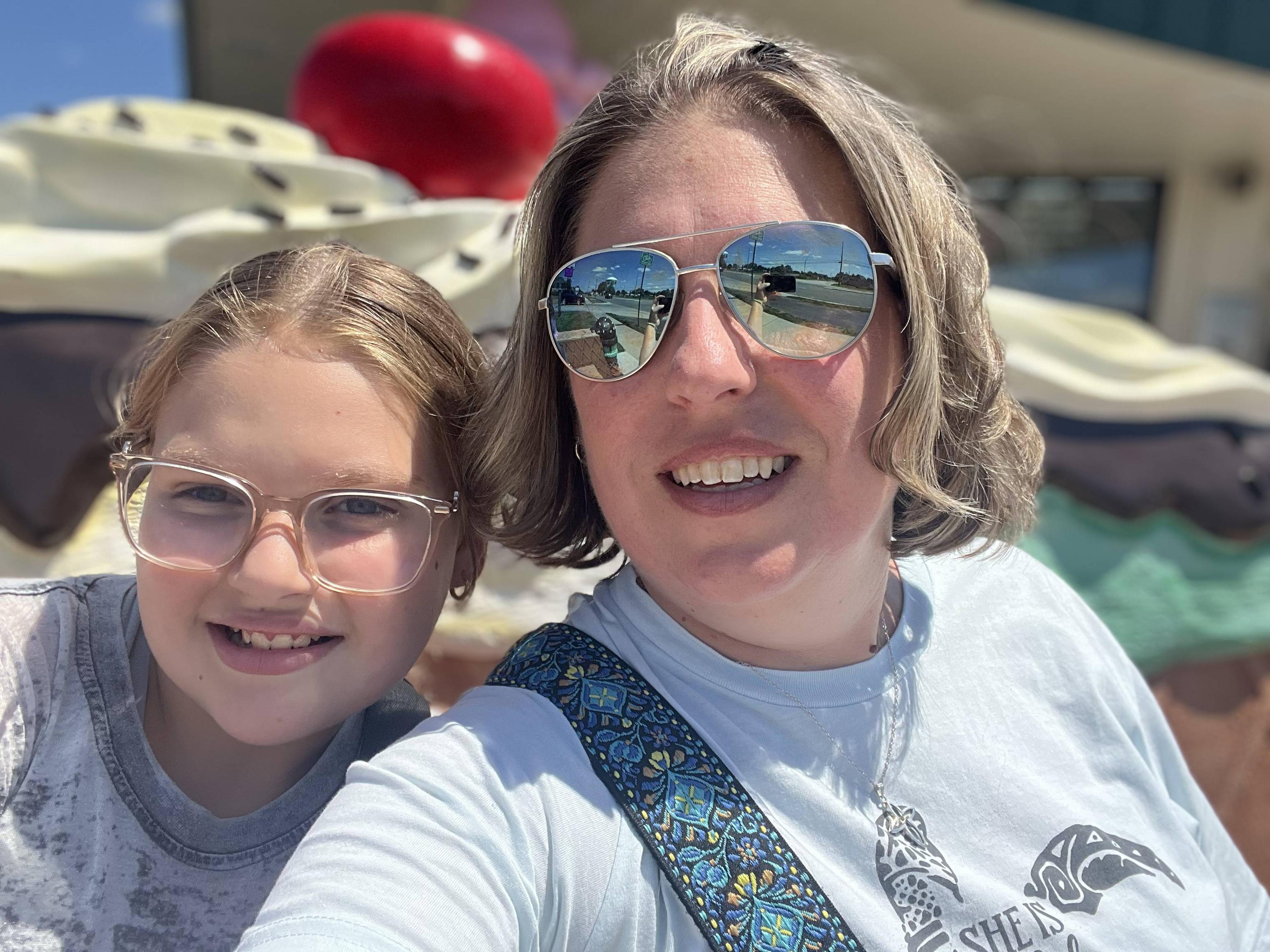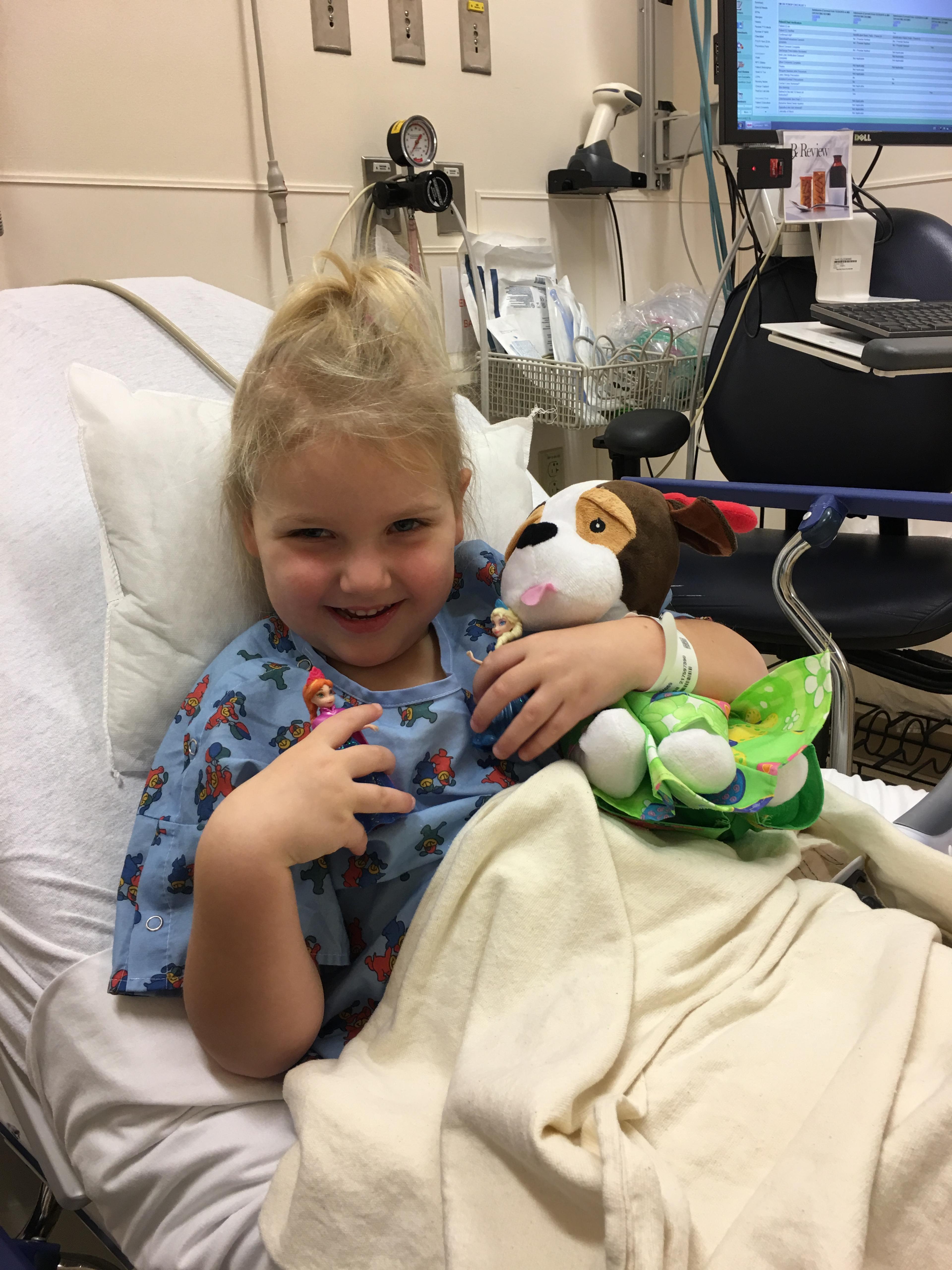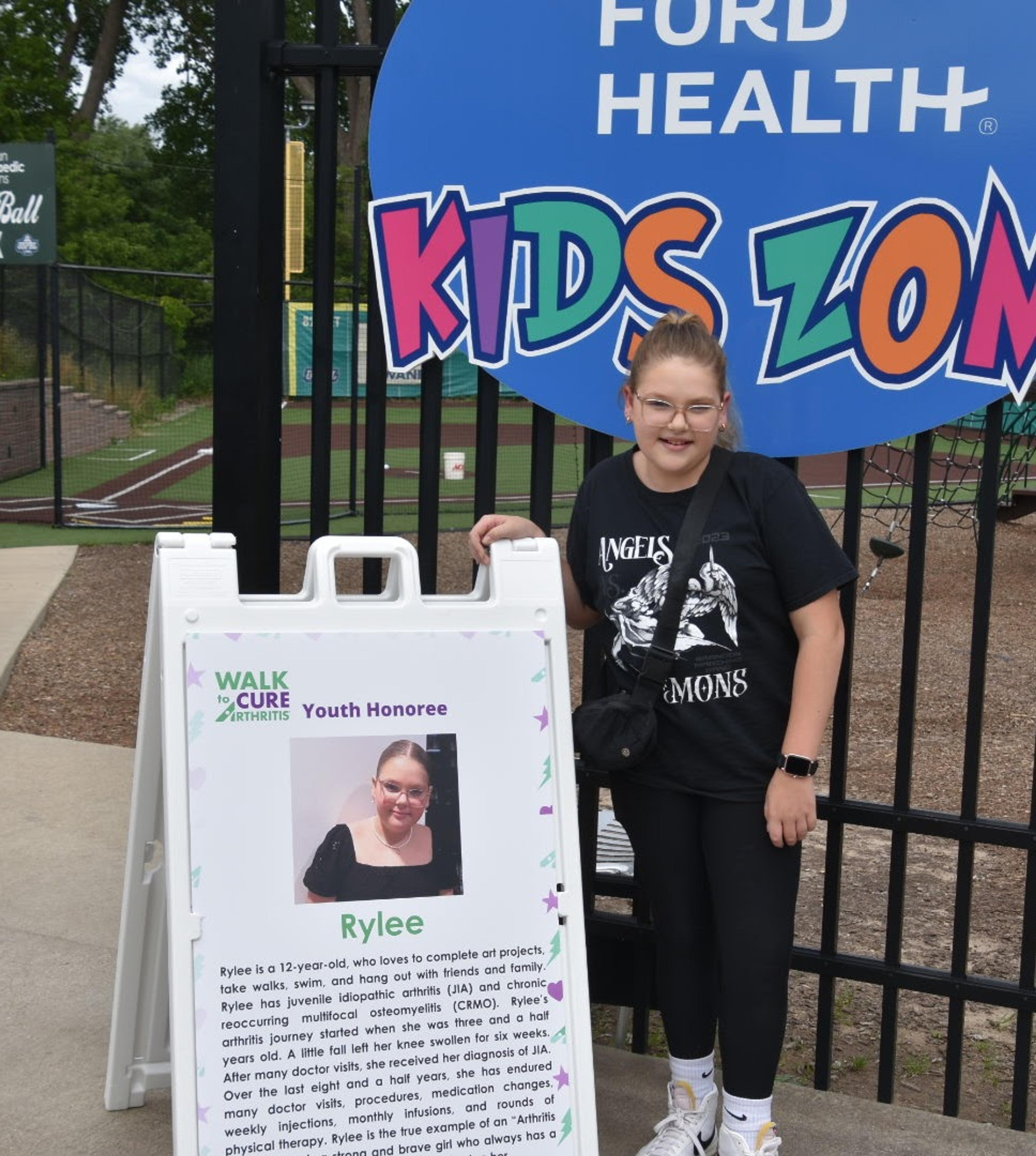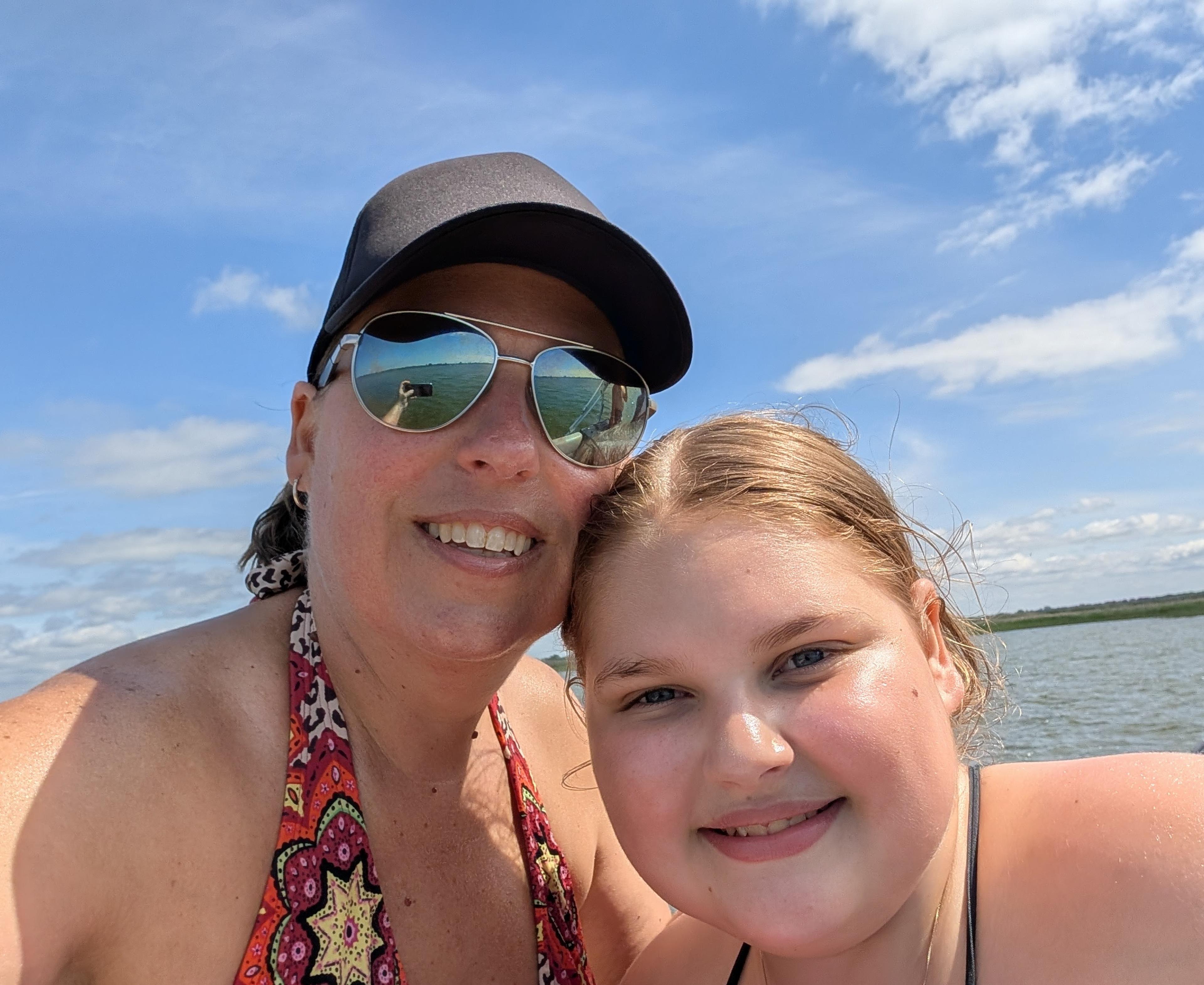Ortonville Child's Courage, Resilience in the Face of Juvenile Idiopathic Arthritis Makes Her an 'Arthritis Warrior'
Jake Newby
| 6 min read

Key Takeaways
- Juvenile idiopathic arthritis affects children under the age of 16 and is characterized by joint pain and swelling.
- Ortonville's Rylee Chesnutt has had JIA since age 3, along with multiple other autoimmune disorders.
- Rylee deals with daily pain, stiffness and fatigue and sometimes struggles with physical activity.
- Rylee's mother, Gina, believes the condition has given Rylee more empathy. The family leans on various supports groups to better manage the condition physically, mentally and emotionally.
Ortonville resident Gina Chesnutt was concerned when her then-3-year-old daughter bumped her left knee as the family walked into church 10 years ago. But she wasn’t prepared for the major journey that followed such a seemingly minor fall.
“Rylee was walking into church, she bumped her knee and it was swollen for six weeks,” explained Gina, a Blue Cross Blue Shield of Michigan member. “It took us to the pediatrician then to the orthopedic surgeon, who then referred us to the University of Michigan’s rheumatology department for pediatrics.”
After too many doctor’s visits to count, Rylee, now 13, was diagnosed with juvenile idiopathic arthritis (JIA). Approximately one in every 1,000 children have JIA, according to the American College of Rheumatology (ACR). It’s a condition that affects children under the age of 16 and is characterized by joint pain and swelling, both of which have plagued Rylee on a daily basis.
“During that time, you’re watching your child suffer, limp, deal with pain, not want to walk,” Gina said. “Only being 3, she didn’t understand everything that was going on. Once we finally got the diagnosis there were lots of questions like, ‘what does this mean?’ And ‘is she going to have to deal with this for the rest of her life?’

Children with JIA typically lead normal, active lives, according to the ACR. But physical activity can certainly be taxing on children like Rylee. She’s a big fan of making art, swimming and playing with friends. Anything physical tends to leave Rylee sore and fatigued.
“The hardest part about growing up with it was probably not being able to catch up with my friends on the playground or not being able to do certain things,” Rylee said.
“If (Rylee and her friends) are playing tag, she can’t run as fast because of pain or having a limp at times,” Gina added. “She will have to take medication breaks. There are things that come along with this journey that no one understands unless you are on that journey yourself.”
JIA is a type of autoimmune disorder in which the immune system gets confused and attacks the body’s cells and tissue. Research shows patients with JIA often experience comorbid conditions, including co-existing autoimmune diseases. This is unfortunately the case for Rylee, who has also been diagnosed with chronic recurrent multifocal osteomyelitis, ulcerative colitis and pyoderma gangrenosum, all in the last five years.

Treatment for JIA: How the Chesnutt family navigates Rylee’s symptoms
Gina said she has cycled through 15 to 20 different medications in search of a combination that eases Rylee’s aches and pains.
“She is on a current regiment of infusion and daily oral medications that has helped,” Gina said.
Icing, heat, rest and relaxation are other treatment methods Rylee has undergone at home. Carving out plenty of time to move around and avoid stiffness is also key.
“It’s a very fine line as to how to keep all of the different things in check to make sure she feels the best that she can,” Gina added.
The Arthritis Foundation recommends low-impact exercises and activities like swimming, cycling, yoga and tai chi to help negate joint stiffness and ease inflammation.
Rylee’s attitude makes her an “Arthritis Warrior”
In a Facebook post detailing Rylee’s battle with JIA, Arthritis Foundation Michigan (AFM) refers to Rylee as an “Arthritis Warrior” for the way she’s handled the condition. Naturally, she has her down days, but Rylee’s courage and positive attitude shine through most of the time.

“There are harder days some days than others,” Gina explained. “Through her journey, unfortunately, she doesn’t really know any days without pain. For the last 10 years she’s had daily pain. She’s always pushing through that and pushing through things that would stop normal kids in their tracks. The needle pokes that come with infusions, she’s become accustomed to. Most kids would go kicking and screaming each month, and she goes in like, ‘here I am, I’m ready to do this.’”
Rylee’s disposition has given her an empathetic perspective that Gina believes is well beyond her years.
“She’s earned and gained a lot of empathy toward other people by going through everything that she’s gone through,” Gina said. “She’s so caring for others because she knows what it’s like to not feel good and go through things that are not fun.”
How multiple support systems have helped the Chesnutts navigate JIA
The AFM Facebook page is one of many support systems – both digitally and in person – the Chesnutt family has relied on and gleaned knowledge from over the years.
“We definitely are very involved with fundraising (for AFM) and making sure there is money for research,” Gina said. “We have good family support and friend support. But also, the people we’ve met through the Arthritis Foundation events and the walks and the jingle bell runs, meeting kids that have the same thing as Rylee has been huge. So, we can have that support system and ask ‘hey, did you go through this?’ with a text.”

When changing treatment plans, Gina has tapped into Facebook support groups to get a gauge on what she should expect from certain medications, exemplifying how helpful these support systems and resources can be for families navigating a chronic childhood condition.
If there’s one thing Gina wishes she knew 10 years ago as she prepared to go on this journey with her daughter, it’s to reach out to people who have trekked that path before them.
“You sometimes feel like you are on this journey all by yourself, and you have to make these huge decisions about putting your kid on a medication that might have some scary side effects,” Gina said. “Or some treatment plan that is not really (Food and Drug Administration) tested, but they are suggesting it for your child.”

Gina has never regretted reaching out to learn more about Rylee’s condition. She can’t recommend reaching out for help enough to any family burdened with juvenile arthritis.
“There are people that have gone through everything you are going through if you can find the right people to sit down and talk about it,” she said. “Even if it’s just through text or Facebook Messenger, to find answers or insights into unknowns can be huge for somebody that is newly diagnosed.”
Learn more about AFM programs, fundraising opportunities and the nonprofit organization’s pursuit to find a cure for arthritis by visiting this link.
More from MI Blue Daily:
Photo credit: Gina Chesnutt





